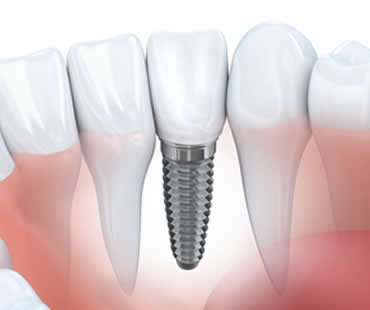
To improve the success of your dental implant surgery, there are a few guidelines you can follow during your recovery process. Diet is one of the most important factors to consider to ensure your implants heal properly.
Initially, you should not eat or drink hot foods for 24 hours after surgery as the heat could open the wound and cause an increase in bleeding. Avoid foods that may cause trauma to the gums or disrupt the implant, including the following:
- Hard foods such as candies, pretzels, nuts, and crunchy vegetables
- Chewy foods that require more than a couple of rounds of chewing such as rolls, gummies, hard fruit, and gum
- Foods that could stick in teeth or leave particles behind such as popcorn, seeds, and chips
- Foods or drinks that contain citric acid, such as oranges or grapefruit
Carbonated beverages
A soft diet is recommended for approximately two weeks after implant surgery to allow the gum tissue to heal. It is especially important to stay hydrated by drinking plenty of fluids, although you should strictly avoid the use of a straw for at least 48 hours post-surgery. Suggestions of ideal food and drinks after implant surgery would be:
- Cooked cereals such as cream of wheat or oatmeal
- Yogurt
- Scrambled eggs
- Cottage cheese
- Broth, bouillon, or soups
- Ground beef, baked or broiled fish, or baked or stewed chicken
- Macaroni and cheese
- Baked or mashed potatoes
- Soft bread
- Puddings, milkshakes or ice cream
- Water, milk, coffee or tea
Patients who maintain a healthy diet of soft foods feel better and heal faster after dental implant surgery. Following these guidelines will help to ensure the quickest and most successful recovery from your implant surgery.
Contact our Longview dental office today to learn more about dental implants options.

Losing teeth for one reason or another is not as uncommon as you might think. Injuries and severe tooth decay are only a couple of the causes for smiles to have holes in them from missing teeth. The good news is that you don’t have to go through life with an incomplete smile. Dental implants provide one solution for replacing lost teeth.
Popularity
These restorations that involve a titanium root with an artificial tooth on top have become increasingly popular. Instead of using bridges or dentures that are known to have some hassles with them, implants are a permanent and secure solution. Once the area has healed, you can go back to your normal habits without any concerns related to the implant. They look very natural, preserve neighboring teeth, improve speech, restore the mouth’s function, and help maintain your facial features.
Candidates
Good candidates for implants have strong enough jaw bones to be able to support the implant. Patients with significant bone loss may not be able to successfully maintain implants. Good oral health is helpful, as is good general health since surgery is required. Smokers and those with certain health conditions may not be recommended for dental implants.
Procedure
Once you’ve been identified as a good candidate, the first step is having the titanium rod inserted into your jaw bone. It can take up to three months for it to completely fuse with your bones. Then your dentist will make an abutment to hold the implant, and a mold will be taken of your mouth so that the crown can be created. Until it is ready, a temporary crown will be placed. Finally, your crown will be placed and adjustments will be made if needed.
Maintenance
After you implant is complete, you can resume your regular lifestyle. Your normal dental hygiene routine of brushing, flossing, and checkups should be maintained for the best results.
We offer dental implants at our Longview dental office.

When you don’t have a full smile, your self-esteem and oral health decline. Implant restorations offer a solid solution for patients who have lost teeth. Designed to look and feel like your natural teeth, dental implants will rejuvenate an incomplete smile. Dental implants allow you to eat the foods you love, speak clearly, and laugh with confidence.
Constructed from biocompatible titanium, a dental implant is a small metal post surgically inserted into your jaw bone. The implant creates an artificial tooth root. Eventually, a permanent crown is placed on the post, restoring the function and appearance of your smile.
Although you can replace missing teeth with dentures or crown and bridgework, dental implants offer several advantages, including:
• Durability
• Longevity
• Natural Appearance
• Stability
Before suggesting dental implants, your dentist will evaluate your mouth and oral health to make sure you are a good candidate for implants. If you don’t have sufficient bone structure to support the implants, your dentist may suggest a bone graft. In most cases, dental implants have a 95 to 98 percent success rate.
With implant therapy, an oral surgeon or prosthodontist will position one metal post in each empty socket. Implants can replace one or more missing teeth. Once your mouth heals and bone fuses with the biocompatible post, your dentist will attach a lifelike prosthetic crown. Care for the implants as you would your natural teeth, brushing twice daily, flossing frequently, and visiting the dentist for routine checkups.
Dental implants dentist in Longview

Dental implants are the best restorative choice for replacing a tooth that is missing. Whether the tooth has come out due to some kind of facial trauma or an infection or other issue, dental implants are the solution. The real difference in quality between a dental implant and other restorations such as bridges lies in the fact that the dental implant is placed directly into the patient’s jawbone, eventually fusing there through a process known as ossification.
Over time, ossification provides the kind of tooth base that is only seen elsewhere in natural teeth. When a dental implant is successful, it is as secure and as natural looking as a patient’s own original teeth; however, in some cases, dental implants fail. Sometimes they fail repeatedly. What’s causing these dental implant failures? Here are some potential causes.
Sometimes the implant doesn’t fuse with the bone and the bone shrinks away from the implant, leading to implant mobility or even the implant falling out. Patients who have weak bones due to age, osteoporosis, years of being edentulous (toothless) or another medical condition will find dental implants more challenging. If you’ve been having issues with failure to ossify, your dentist might recommend a bone graft to rebuild the jawbone to a healthy level so that dental implants can properly fuse.
In other cases, persistent infection may result in repeated implant failure. Signs of infection are continuous bleeding, swelling at the implant site or acute inflammation of the gum tissue at the implant site. Pus may be evident, or a bubble might appear on the gumline. Some health issues such as diabetes, auto-immune disorders or treatments like cancer therapies can weaken the immune system and leave the implant site vulnerable to infection. Your dentist might prescribe antibiotics or recommend you see an endodontist for a root canal treatment.
If you’re concerned about your dental implant, talk to Longview dentist Dr. DiStefano right away. Find out what steps you need to take to ensure that your dental implants are successful.
Schedule your appointment at our Longview dental office

Tooth loss is a common occurrence – millions of people suffer tooth loss – primarily as a result of gum disease, tooth decay or facial trauma. For years, the only treatment options available to those missing a tooth were partial dentures or bridges. Today, dental implants are available as an alternative. If you have lost a tooth, you may wonder why you should choose a dental implant over a bridge or partial denture.
Following are some of the advantages of dental implants:
- Dental implants prevent bone loss. Without the tooth root, the bone of the jaw begins to shrink, or resorb, causing problems with remaining teeth and changing the shape of the face. Dental implants serve as replacement roots for the tooth, and continue to stimulate and preserve the bone. When an implant is used, the jawbone fuses to the metal implant in a process known as osseointegration, reducing bone shrinkage significantly.
- Dental implants look better. They feel, look and function like your own natural teeth. Because they fuse directly with your bone, they become permanent, and with proper care, never need to be replaced.
- Dental implants fit better. They are more comfortable and are easier to clean. Because they are so secure, you will speak more clearly and eat with greater confidence and comfort.
- Dental implants will improve your oral health. Implants don’t affect the surrounding teeth the way a bridge does. Your natural teeth remain intact, allowing for easier greater health and cleaning around each tooth.
- Dental implants are convenient. They never have to be removed to clean under them, nor do they need adhesives or wire to stay in place.
- Dental implant surgery has a very high success rate. They are durable and can last a lifetime if you care for them properly.
If you are healthy enough to undergo an extraction of your tooth, you can generally be considered for dental implant surgery. You must have enough healthy bone and soft tissue to hold the implant. Talk to your dentist today if you have questions regarding dental implants and whether they are a right choice for you.
We look forward to seeing you in our Longview dental office

Are you or someone in your family missing a single tooth due to an accident, infection, or fracture? If you are missing a single tooth for any reason, a single tooth dental implant can replace both the natural tooth and its root. The best, long-term option for restoring a single missing tooth is a dental implant fitted with a crown.
To place the implant, a small titanium post is inserted into the jawbone. This anchor provides a “root” for the placement of the implant that looks, feels, and functions like a natural tooth. These “anchors” are extremely compatible with bone and attach to the jawbone and gums to become a base for the crown. A temporary tooth can be placed while the dental implant integrates with your natural bone to form a foundation for a crown. Once the implant has fused to the bone, the final step in the treatment is the placement of the permanent crown onto the dental implant.
One of the advantages of a dental implant is that it allows you to replace a single tooth without sacrificing the health of neighboring teeth. Other treatments, such as bridges, require the adjacent teeth to be ground down to support the appliance. Grinding down the teeth damages tooth enamel and structure. Also, a single implant can be more aesthetically pleasing and easier to keep clean than a bridge.
It is of vital importance to replace even one missing tooth, as leaving it untreated can cause bone loss, compromised chewing ability, as well as an unattractive smile. If you have one missing tooth, or a tooth that needs to be removed due to damage or decay, the best and most natural option is a single tooth dental implant.
Our dental office is located in Longview









